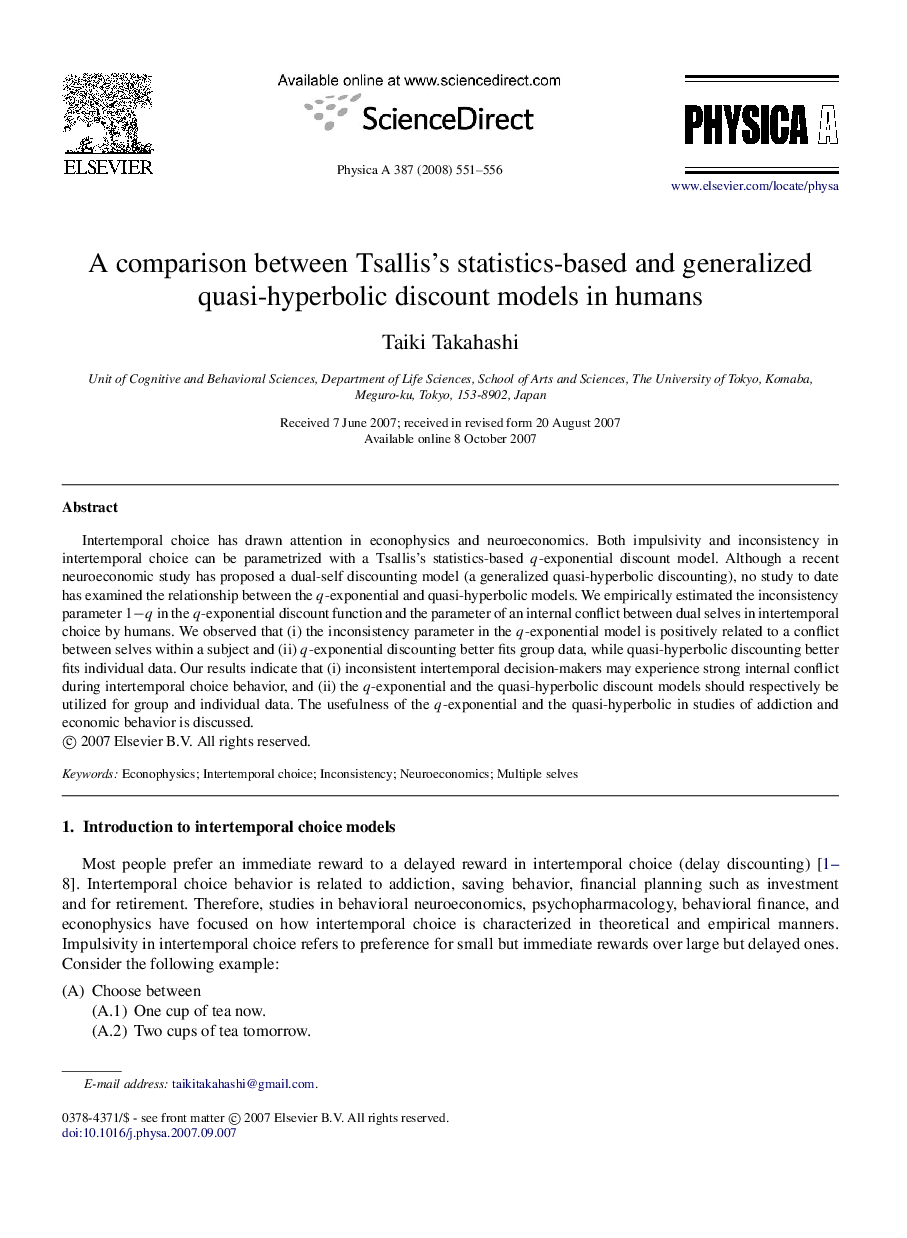| Article ID | Journal | Published Year | Pages | File Type |
|---|---|---|---|---|
| 978033 | Physica A: Statistical Mechanics and its Applications | 2008 | 6 Pages |
Intertemporal choice has drawn attention in econophysics and neuroeconomics. Both impulsivity and inconsistency in intertemporal choice can be parametrized with a Tsallis’s statistics-based qq-exponential discount model. Although a recent neuroeconomic study has proposed a dual-self discounting model (a generalized quasi-hyperbolic discounting), no study to date has examined the relationship between the qq-exponential and quasi-hyperbolic models. We empirically estimated the inconsistency parameter 1−q1−q in the qq-exponential discount function and the parameter of an internal conflict between dual selves in intertemporal choice by humans. We observed that (i) the inconsistency parameter in the qq-exponential model is positively related to a conflict between selves within a subject and (ii) qq-exponential discounting better fits group data, while quasi-hyperbolic discounting better fits individual data. Our results indicate that (i) inconsistent intertemporal decision-makers may experience strong internal conflict during intertemporal choice behavior, and (ii) the qq-exponential and the quasi-hyperbolic discount models should respectively be utilized for group and individual data. The usefulness of the qq-exponential and the quasi-hyperbolic in studies of addiction and economic behavior is discussed.
